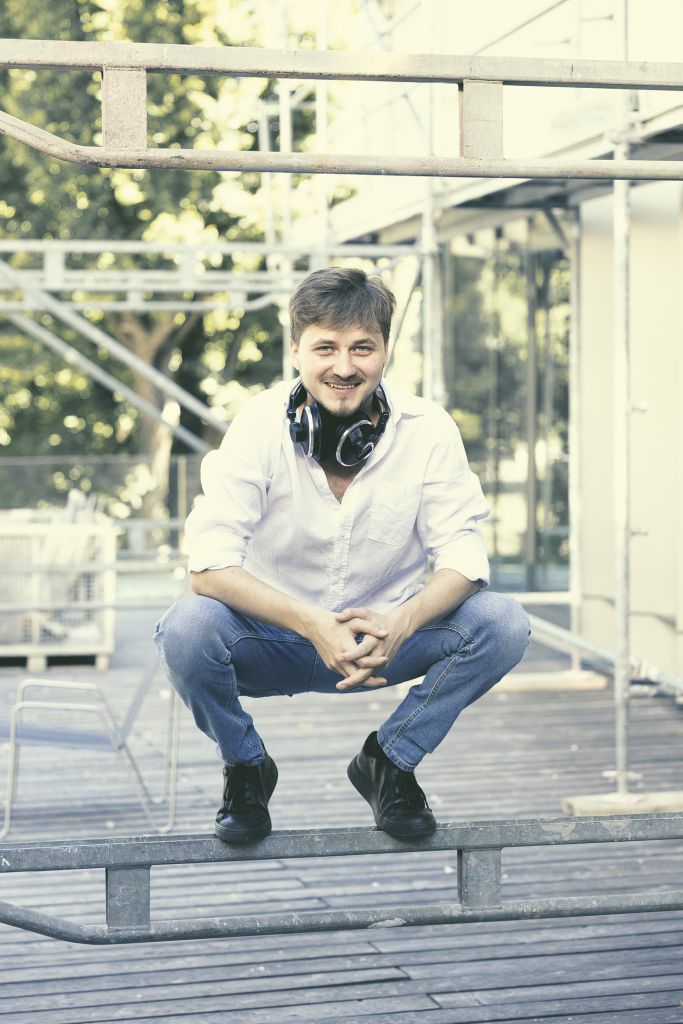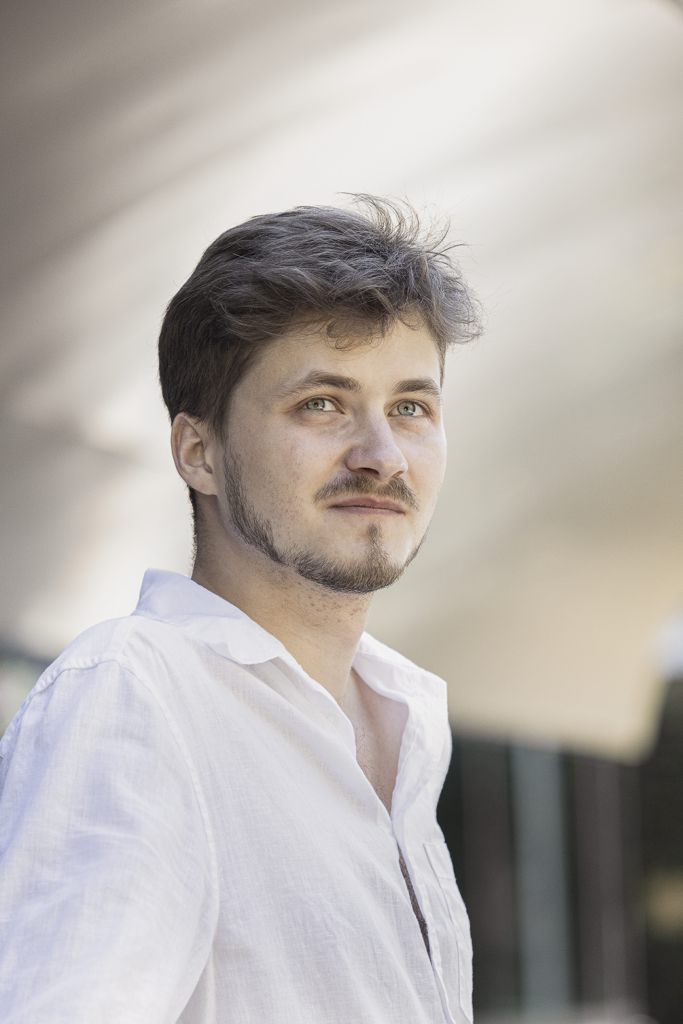Studiert an der mdw seit: 2018
Studienfach/-fächer: Komposition & Medienkomposition
Lieblingsort an der mdw und warum: Future Art Lab, da hat man alles, coole Architektur, geile Studios, super Performance-Räume und auch schicke Entspannungsorte. Was fehlt, ist nur ein 24/7-Öffnungszeitenplan.
Lieblingsort in Wien: Museumsquartier

Was ich gerne gleich zu Beginn des Studiums gewusst hätte: Dass es in Ordnung ist, die Dinge langsam anzugehen und sich nicht zu viele Dinge auf einmal vorzunehmen.
Wenn ich komponiere, dann ist es für mich immer eine Gratwanderung zwischen rationalen und emotionalen Entscheidungen darüber, was das Stück sein könnte und wohin es gehen soll, sodass es sich immer wie eine Achterbahnfahrt anfühlt, die sich hoffentlich auch im musikalischen Ergebnis wie eine Reise ins Ungewisse niederschlägt.
Eine Frage/ein Thema, das mich derzeit/allgemein sehr beschäftigt, ist, welche Hörgewohnheiten und Erwartungen an Musik kulturell bedingt sind und welche eher universell oder bei Menschen mit unterschiedlichem kulturellem Hintergrund zu finden sind.
Mein größter Erfolg bisher ist für mich objektiv gesehen wahrscheinlich der Preis beim Wettbewerb Spheres of a Genius, aber subjektiv ist für mich die letzte Komposition immer der größte Erfolg, da sie einen weiteren ehrlichen Schritt auf meinem Weg in der Musik darstellt – und in diesem Fall wäre es das Musiktheater, das im Juni im Klangtheater Premiere hatte.
Wie gehst du an eine Auftragskomposition für z. B. einen Film heran? Ich versuche, so gut wie möglich zu verstehen, was der Subtext des Films ist und was die Musik dem Ganzen hinzufügen soll. Danach, falls Zeit ist, erstelle ich eine Liste mit musikalischen Ideen, die ich später mit dem/der Regisseur_in bespreche, damit wir uns für eine Richtung entscheiden können. Und zum Schluss bleiben noch die einfacheren Schritte des gesamten Prozesses übrig, und zwar Komponieren, Produzieren/Aufnehmen, Mischen/Mastern. Wenn all dies erledigt ist, hofft man, dass keine drastischen Überarbeitungen erforderlich sind, aber das hängt normalerweise von der Qualität des anfänglichen Gesprächs mit dem/der Regisseur_in ab.

Was ist dir in der Zusammenarbeit mit Filmemacher_innen besonders wichtig? Kommunikation, Kommunikation, Kommunikation. Einander hören. Realistische Erwartungen. Spaß haben.
Ab welchem Zeitpunkt sollten die Komponist_innen in den filmischen Prozess einbezogen werden? So früh wie möglich, damit die musikalischen Ideen Zeit haben, richtig zu köcheln, bis sie ins Bild kommen, und manchmal kann es für die ganze Produktion von großem Vorteil sein, die Musik nur auf der Grundlage des Drehbuchs und seiner Figuren zu schreiben, da der/die Regisseur_in bereits Details über die Stimmung des Films herausfinden konnte, und für die Komponist_innen ist der Fokus der vermittelten Botschaft in dieser Phase – denke ich – abstrakter, da sie noch nicht von irgendwelchen Bildern beeinflusst ist, und so kann es zu recht interessanten Ergebnissen führen.

